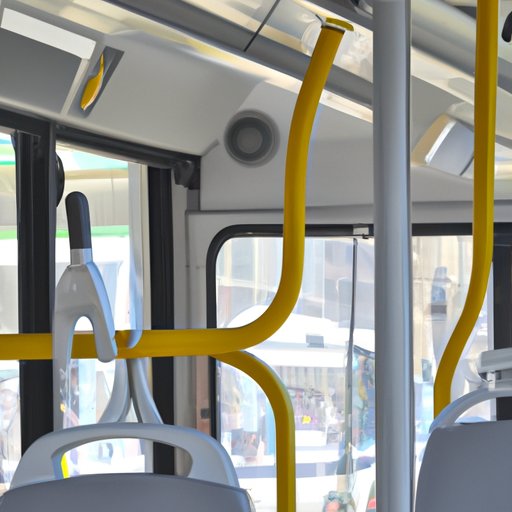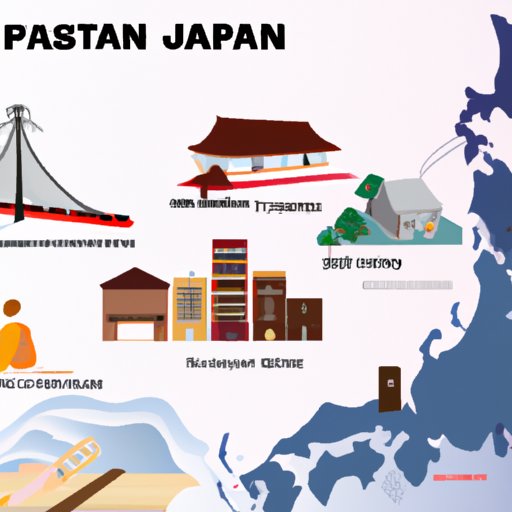Introduction
When deciding to travel to a foreign country, one of the first questions that comes to mind is “is it safe?” This is especially true when considering a largely unfamiliar culture such as Japan. Japan has a reputation as an incredibly safe destination, but is this reputation actually accurate? To answer this question, it is important to look at the various safety measures taken by the Japanese government, the crime rates in the country compared to other countries, the cultural aspects of Japan that make it a safe destination, the public transportation system and its security features, and the infrastructure and natural disaster protection systems.

Safety Measures Taken by the Japanese Government
The Japanese government has implemented numerous policies to protect tourists visiting the country. According to the Japan National Tourism Organization (JNTO), “the government of Japan has put in place a series of measures to ensure the safety of all visitors, including the introduction of enhanced security checks at airports and other public areas.” These measures include increased surveillance and police presence in major tourist destinations, as well as more stringent immigration procedures.

Crime Rates in Japan Compared to Other Countries
In terms of crime rates, Japan is known for being exceptionally safe. According to data from the United Nations Office on Drugs and Crime (UNODC), Japan has one of the lowest homicide rates in the world, with just 0.3 homicides per 100,000 people. This is significantly lower than the global average of 6.2 homicides per 100,000 people. In addition, the UNODC reports that Japan has the second-lowest burglary rate among developed countries, with just 4.4 burglaries per 100,000 people.
When comparing Japan’s crime rates to other countries, it is important to note that Japan has a much higher population density than most countries. Despite this, the country still maintains a low crime rate, suggesting that there are other factors at play that contribute to the safety of the country.
Cultural Aspects of Japan that Make it a Safe Destination
The culture of Japan is one of the main reasons why the country is so safe. The Japanese people have a strong sense of respect for each other and their environment, which leads to a greater level of personal responsibility. For example, according to a study by the Institute for Economics and Peace, “Japanese citizens report feeling safer than citizens of comparable countries due to the high level of trust between individuals and the respect for authority.” This respect for authority helps to ensure that laws are followed and that crimes are less likely to occur.
In addition, the Japanese people have a strong sense of community and are known for looking out for one another. This can be seen in the way people interact with each other on public transportation, in shops, and in other public spaces. For example, a survey conducted by the Tokyo Metropolitan Police Department found that 91% of respondents said that they felt safe taking public transportation in Japan.

Public Transportation System and its Security Features
Japan’s public transportation system is efficient, reliable, and safe. The country has an extensive network of trains, buses, and other modes of transport, making it easy to get around. In addition, the public transportation system has a number of security features that help to ensure the safety of passengers. These include CCTV cameras, automated ticket gates, and dedicated police officers who patrol the trains and buses.
Furthermore, Japan has a zero-tolerance policy towards any type of harassment on public transportation. This includes physical violence, verbal abuse, and sexual harassment. As a result, the majority of people feel comfortable using the public transportation system in Japan, knowing that they will not be subjected to any form of harassment or intimidation.
Infrastructure and Natural Disaster Protection Systems
When it comes to infrastructure and natural disaster protection systems, Japan is considered to be one of the best-prepared countries in the world. The country has a sophisticated network of dams, levees, and other infrastructure designed to protect against floods, storms, and other natural disasters. In addition, the government has implemented strict regulations and building codes to ensure the safety of buildings and other structures.
Furthermore, Japan has a comprehensive disaster preparedness and prevention strategy in place. This includes regular drills and training sessions, as well as public awareness campaigns aimed at educating citizens about how to stay safe during natural disasters.
Common Tourist Scams to Avoid
Although Japan is generally a safe destination, there are some common tourist scams that travelers should be aware of. These include taxi scams, pickpocketing, fake tickets, and credit card fraud. To avoid these scams, it is important to be aware of your surroundings and take precautions such as not carrying large amounts of cash and not giving out personal information to strangers.
It is also advisable to research the area you are visiting before you arrive. This will help you to identify potential scams and learn how to avoid them. Additionally, if you are ever in doubt, it is always best to ask a local for advice.
Conclusion
Overall, Japan is an incredibly safe destination for travelers. The country has a low crime rate, a culture of respect and personal responsibility, an efficient and secure public transportation system, and robust infrastructure and natural disaster protection systems. However, it is important to be aware of potential tourist scams and take necessary precautions to stay safe. With these safety measures in place, travelers can enjoy their trip to Japan with peace of mind.
(Note: Is this article not meeting your expectations? Do you have knowledge or insights to share? Unlock new opportunities and expand your reach by joining our authors team. Click Registration to join us and share your expertise with our readers.)
